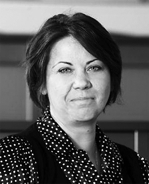General Problems in Developing and Using Study Materials
The article treats the economic and moral rights of the author on works created in execution of duties of employment. Examples are given from a short study on copyright carried out among the regular and visiting lecturers of the Police and Border Guard College of the Estonian Academy of Security Sciences.
The author of the article conducted a short study during the spring semester of 2013 in order to determine the views of lecturers regarding developing study materials and their later use in the Police and Border Guard College of the Estonian Academy of Security Sciences. The sample group included 29 lecturers, forming 67.4 % of the overall sample group. The study looked at the following topics: the rights of the lecturer on a work created in execution of their duties of employment; the later use of the work or the idea of the lecturer by themselves, by other lecturers or by students; joint and co-authorship of a lecturer and a student in compiling a thesis; the use of the work of a student as a teaching aid; the right to add to or to alter study materials; and issues related to publishing study materials.
The moral rights of the author have been provided in clauses 12(1)1–9) of the Copyright Act, which state them as following: right of authorship; right of author’s name; right of integrity of the work; right of additions to the work; right of protection of author’s honour and reputation; right of disclosure of the work; right of supplementation of the work; right to withdrawing the work, i.e. request that the use of the work be terminated; and right to request that the author’s name be removed from the work which is being used.
The definition of economic rights has been provided in § 13 of the Copyright Act, which says that the author enjoys the exclusive right to use their work in any manner, to authorise or prohibit the use of the work in a similar manner by other persons and to receive income from such use of their work. Under clauses 13(1)1–11) of the Copyright Act, the author holds the following economic rights: right of reproduction of the work; distribution right; right of translation of the work; right of alteration of the work; right of collections of works; right of public performance; right of exhibition of the work; right of communication of the work; right of making the work available to the public; right of carrying out the author’s architectural, design, applied arts, etc., project.
The study shows that lecturers do not differentiate between the economic and moral rights of the author and are not quite sure how and to what extent the works created by them can be published or made available to the public. Based on the results of the short study and the Estonian experts of intellectual property regulations (Heiki Pisuke and Aleksei Kelli), the author finds that a cross-university unified regulation of intellectual property could be applied to authors who are also lecturers, in order to ensure equal treatment of authors.
Secondly, the Copyright Act should definitely be amended with a regulation on the free use of works. This is imperative because in the modern globalising world any result of a creative work could form the foundation of new knowledge that takes the society forward. This must absolutely be done in a flexible way, so that the rights of the author and the public interests remain in balance.
